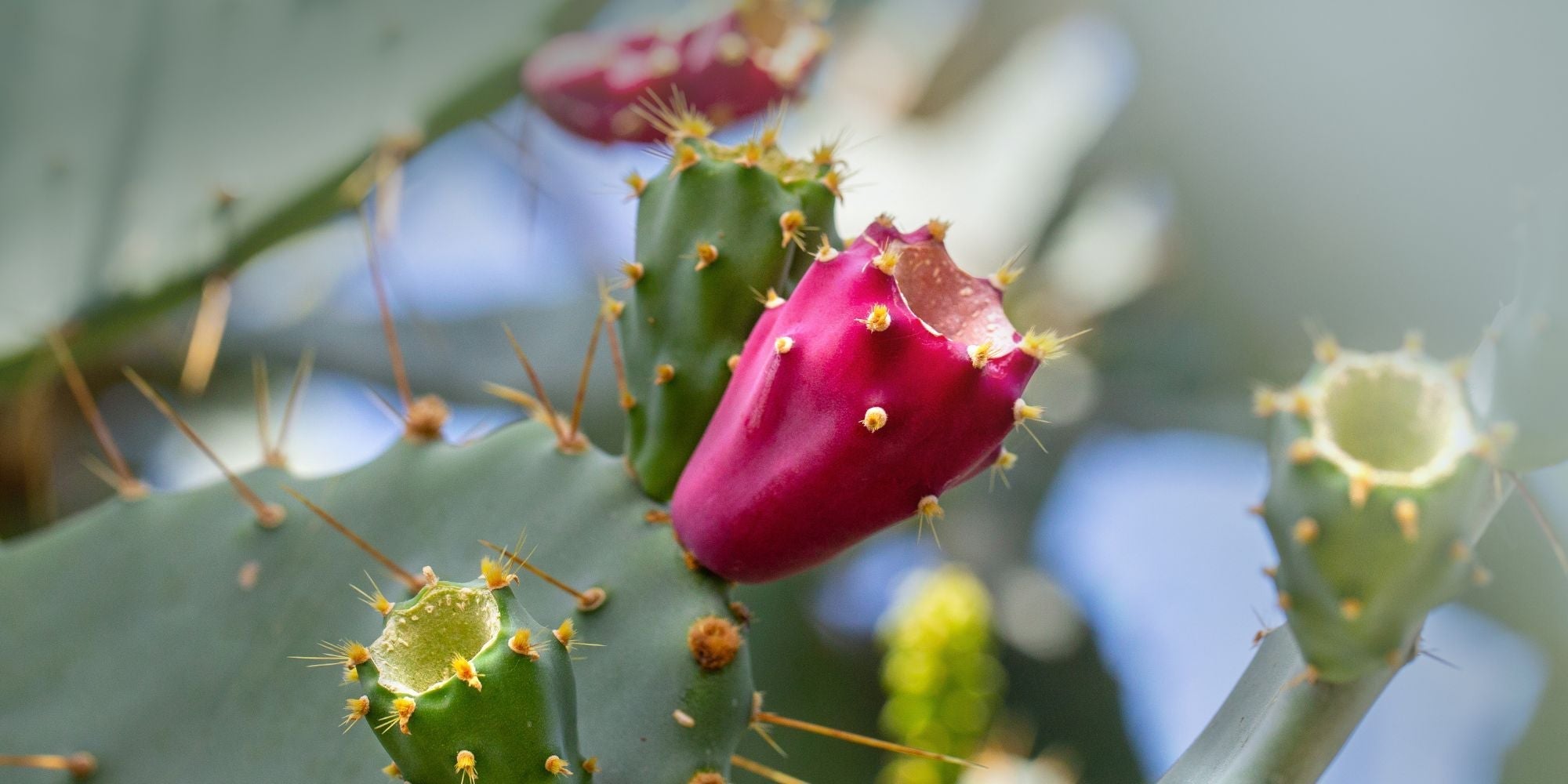
When it comes to Prickly Pear liver health, you might be wondering is prickly pear good for your liver? We'll show you the tried and true facts below on Prickly Pear liver benefits and the science behind it.
Prickly pear (opuntia ficus-indica) is a traditional Mexican remedy used as a liver tonic. It's made from the fruit or pads of the prickly pear cactus and has been used for centuries by traditional healers.
In modern times, prickly pear liver has been shown in several studies to have various health benefits for the liver, and also helping to cleanse the body of toxins and supercharge antioxidant levels.
The short answer of is prickly pear good for your liver? Absolutely yes, prickly pear is superior for liver aid and an effective liver aid supplement. We'll dive into much more details below.
Prickly Pear is a delicious and nutritious fruit that can help to improve liver health. The prickly pear plant grows in the desert regions of North America, South America and Australia.
It is high in vitamins and minerals, especially vitamin C, potassium, iron, magnesium and zinc. The fruits contain betalains, an antioxidant as strong as green tea, which give them their red color when cooked or dried for use as a dye.
Due to its high antioxidant count, prickly pear compounds have been shown to support liver health by protecting the liver from toxins and improving liver function.
There's many prickly pear benefits for liver health. Here's 7 ways prickly pear good for liver:⁴
With so many ways prickly pear good for liver, this cactus is a key supplement for liver health.
The prickly pear plant has been used as a medicinal herb since ancient times. Dating back to the Aztecs, they would use prickly pear to treat hepatitis, which is a disease where the liver is inflamed or damaged.
Until modern science, we now have studies to back the liver support claims of prickly pear.
These incredible discoveries of modern science proves prickly pear's vast liver benefits and its ancient liver remedies.
In addition to liver support, Prickly pear is often touted as the best Mexican hangover remedy. But is the prickly pear extract hangover science true?
A study published in the National Library of Medicine suggests that prickly pear may be effective in helping hangovers. Overall, prickly pear of opuntia ficus indica improved the symptoms of an alcohol hangover.
Here's the details of the prickly pear hangover study:
Based on this research, prickly pear cactus hangover remedy is a proven solution according to modern science.

Boost your body with prickly pear's liver enhancing benefits with Zaca chewable tablets. Our proprietary formula uses only the highest quality prickly pear extract. Enhanced with complimentary liver support ingredients such as Japanese Raisin, and coupled with our rigorous quality assurance processes, our potent prickly pear tablets are guaranteed to be safe and effective. Try Zaca's chewable tablets today and boost your liver health with the hailed prickly pear.
SOURCES:
1. Evaluation of Opuntia ficus indica f. inermis fruit juice hepatoprotective effect upon ethanol toxicity in rats
https://pubmed.ncbi.nlm.nih.gov/23047946/
2. Opuntia ficus indica (nopal) attenuates hepatic steatosis and oxidative stress in obese Zucker (fa/fa) rats
https://pubmed.ncbi.nlm.nih.gov/23014486/
3. Nopal Cactus (Opuntia ficus-indica) as a Source of Bioactive Compounds for Nutrition, Health and Disease
https://www.ncbi.nlm.nih.gov/pmc/articles/PMC6270776/
4. Prickly Pear: Nutrition, Benefits, Recipes, and More
https://www.healthline.com/nutrition/prickly-pear-benefits#downsides
5. Opuntia ficus indica (L.) Mill. fruit juice protects liver from carbon tetrachloride-induced injury
https://pubmed.ncbi.nlm.nih.gov/16220574/
6. Effect of Opuntia ficus indica on symptoms of the alcohol hangover
https://pubmed.ncbi.nlm.nih.gov/15226168/
Copy the coupon code & use it at checkout